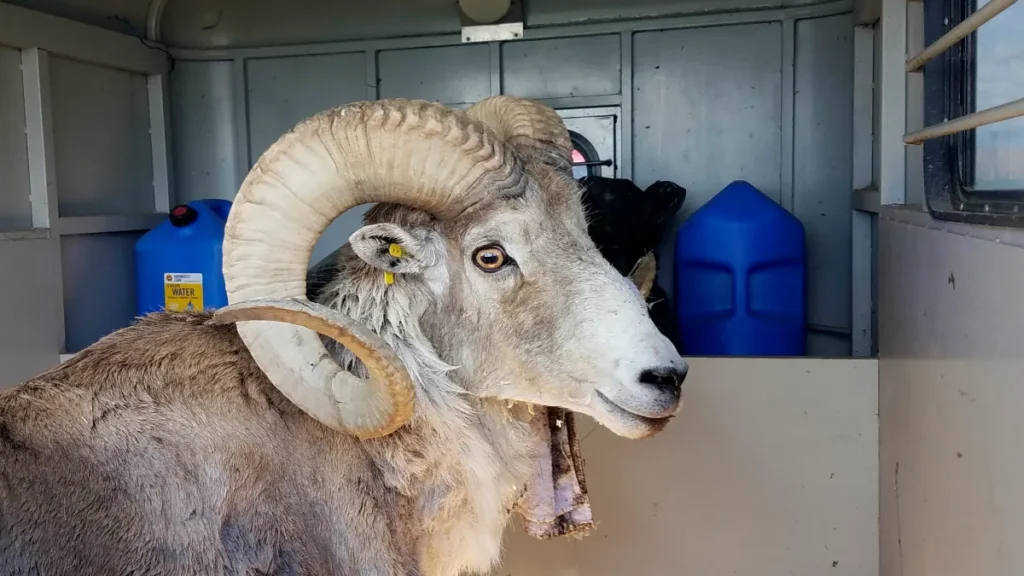
An 80-year-old Montana rancher, Arthur “Jack” Schubarth, has pleaded guilty to felony charges of wildlife trafficking and conspiracy to traffic wildlife. According to court documents and federal prosecutors, Schubarth was involved in a sophisticated operation spanning years, aimed at breeding “giant” hybrid sheep for sale to private hunting preserves in Texas, using tissue and testicles illegally obtained from wild sheep hunted in central Asia and the U.S.
Illegal Wildlife Trafficking Uncovered in Montana Rancher’s Operation
Court documents detail a conspiracy initiated in 2013, involving Schubarth and at least five others, with the objective of creating hybrid sheep through cross-breeding different species. The plan was to cater to private hunting preserves, where individuals pay to shoot captive trophy game animals. Utilizing biological tissue obtained from a hunter who had killed a wild sheep in Kyrgyzstan, belonging to the endangered Marco Polo argali sheep species, Schubarth procured cloned embryos from a lab. These embryos were implanted in a ewe, resulting in the birth of a pure Marco Polo argali sheep, which Schubarth named “Montana Mountain King.”
[adinserter name="Three"]Subsequently, semen from Montana Mountain King was used to artificially impregnate other ewes, aiming to create a larger and more valuable species of sheep. One offspring was even sold to individuals in Texas for a substantial sum of $10,000. Male argali sheep, known for their size and impressive horns, are highly sought after by some hunters. However, they are protected under international conventions as a threatened species and are prohibited for import into Montana to safeguard native sheep populations from disease and hybridization.
[adinserter name="Four"]Further complicating matters, court documents reveal that Schubarth obtained 74 ewes of a prohibited species from Minnesota to his ranch in Montana, where they were artificially inseminated with semen from Montana Mountain King. Offspring with varying degrees of the central Asian sheep’s genetics were sold for differing amounts.
Illegal Exploitation and Wildlife Protection Efforts
In 2019, Schubarth paid a hunting guide $400 for testicles from a trophy-sized Rocky Mountain bighorn sheep killed in Montana. These testicles were then used to extract semen for breeding purposes. This crossbreeding aimed to produce large bighorn sheep and hybrids with the argali species.
[adinserter name="Five"]Assistant U.S. Attorney General Todd Kim condemned Schubarth’s actions as “an audacious scheme to create massive hybrid sheep species to be sold and hunted as trophies.” Schubarth was found to have violated the Lacey Act, which restricts wildlife trafficking and prohibits the sale of falsely labeled wildlife.
[adinserter name="Six"]As part of a plea deal, Schubarth agreed to cooperate with the ongoing investigation into wildlife trafficking. Montana Mountain King is now in the custody of the U.S. Fish and Wildlife Service, and Schubarth has committed to quarantining any other sheep containing Marco Polo argali genetics, as well as any bighorn sheep harvested from the wild. Additionally, federal wildlife officials may inspect and neuter the animals if necessary.
[adinserter name="Seven"]Frequently Asked Questions (FAQs)
-
What are the penalties for wildlife trafficking?
Wildlife trafficking is a serious offense that can result in significant penalties, including imprisonment and hefty fines. In this case, each count Schubarth pleaded guilty to carries a maximum penalty of five years in prison and a $250,000 fine.
-
How are endangered species protected from exploitation?
Endangered species are protected through various national and international laws and agreements. For example, the Marco Polo argali sheep, a threatened species, is safeguarded under international conventions. Additionally, domestic laws such as the Lacey Act in the United States aim to prevent the illegal trafficking of wildlife.
-
What are the implications of hybridization in wildlife conservation?
Hybridization, especially between endangered and non-endangered species, can have significant implications for wildlife conservation. It can lead to the dilution of genetic purity, disruption of ecosystems, and increased vulnerability to disease. Efforts to prevent hybridization often involve strict regulations and conservation measures.
Schubarth’s sentencing is scheduled for July 11 before U.S. District Judge Brian Morris. Despite the ban on captive animal facilities in Montana, Schubarth’s ranch, licensed as an alternative livestock facility, has continued to operate, albeit with restrictions on hunting.
[adinserter name="Eight"]



